Speakers’ Abstracts and Biographies
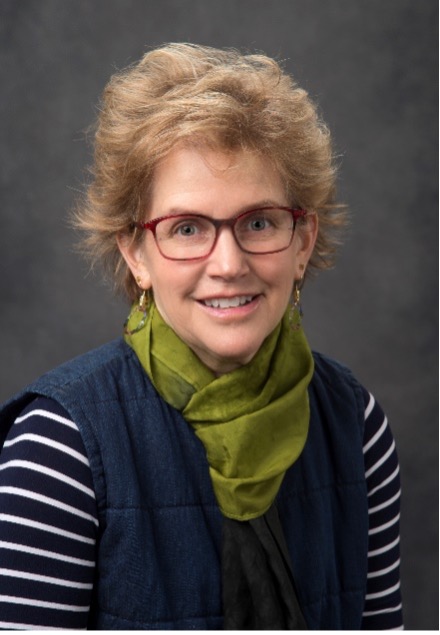
Sylvie M. Brouder, Ph.D.
Director of the Purdue Center for Global Food Security, Professor and Wickersham Chair of Excellence in Agricultural Research, Purdue University
Country: United States of America
Title: “Developing a Purpose-Driven Research Agenda for Climate Smart Agriculture”.
Abstract: In June the US House Agricultural Committee convened a full hearing on “The Role of Climate Research in Supporting Agricultural Resiliency” for which my testimony was invited on behalf of the American Society of Agronomy and its sister societies. My written testimony addressed research needs to advance agricultural resilience in a changing climate with a particular focus on the current status of and challenges associated with achieving open data, a critical first step to capitalizing on the opportunities and efficiencies afforded by the host of new “e-sciences” tools and technologies. The full panel discussion and follow-on meetings have highlighted both the bipartisan interest in supporting research to advance agriculture as a “natural solution” to climate change and the need for Agronomy and collaborating disciplines to chart a purpose-driven pathway for efficient use of current and future funding. My presentation is intended to spur discussion on the overall research agenda as well as ethical hazards scientists may face in advocating for systems, performance metrics, and models.
Biography (Brouder): Sylvie M. Brouder is a professor in the Department of Agronomy and Director of the Center for Global Food Security at Purdue University. Her research addresses nutrient stewardship in agricultural landscapes and application of emerging digital tools and novel statistical approaches to improve data use for evidence-based recommendations and policy in a changing climate. She recently served as president for the American Society of Agronomy (ASA) where she has worked to advance and array of open science and data initiatives. She also serves on the Science Advisory Board for US Environmental Protection Agency. She is also Director of the Water Quality Field Station, a long-term, in-field laboratory and Purdue Core Facility, a Fellow of ASA and AAAS and a Purdue Wickersham Chair of Excellence in Agriculture Research. Her current research projects are funded by USDA and NSF and focus on optimizing multi-functional agricultural lands and synthesizing new research data with legacy and private data into recommendation frameworks.
Email: sbrouder@purdue.edu
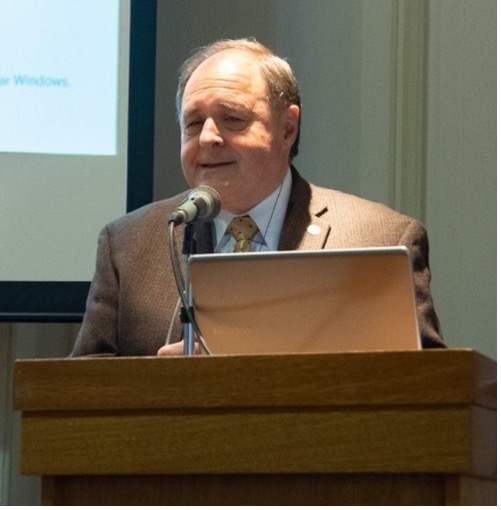
Miguel Ángel Taboada, Ph.D.
Professor Edaphology, University of Buenos Aires, School of Agriculture, Argentina.
Country: Argentina
Title: “Climate-Smart Production of Crop and Livestock in Argentina“
Abstract: Climate-smart agriculture (CSA) is an approach for transforming and reorienting agricultural systems to support food security under the new realities of climate change. Threats are reduced by increasing resilience and resource use efficiency in agricultural production systems. For a long time, Argentine agriculture and livestock did not have CSA as objective, but this began to change in recent years, when about 20% of farmers have adopted knowledge-based systems, such as precision agriculture and agriculture by environments, greater diversification and intensification of rotations, with double crops, late corn, enhanced efficiency fertilizers (EEF) and cover crops along with no-till, in replacement of other systems based on inputs. In the same way, livestock farmers began to pay more attention to grazing management in pasture-based systems, with at most supplementation with grain at the end of the cycle. Based on a study done for FAO by Peralta and Di Paolo (Modeling and mapping Soil Organic Carbon (SOC) sequestration potential (GSOCseq, 2022), the application of these nature-based solutions (NBS) has a potential to sequester carbon between +10% and +30% for cropped soils, and between +25% and +70% for livestock systems. This shows that climate change mitigation by NBS may be the missing link to attain effective CSA in cropping and livestock systems in Argentina.
Biography: Miguel Ángel Taboada is an Agricultural Engineer. He has a Master in Soil Sciences from the School of Agriculture, University of Buenos Aires, and as a Ph.D. in Eco- and Agro-systems from the Higher National Institute of Toulouse, France. He is a Professor of Edaphology at the University of Buenos Aires and Faculty of Agronomy UBA and Director of Carbon Group Agroclimatic Solutions (Taboada continued) SRL. He has author 75 journal publications, 45 book chapters and five books, on topics related to soil fertility, saline-sodium soils, and adaptation and mitigation of climate change in the agricultural sector. He is a member of the National Academy of Agronomy and Veterinary Medicine since December 2021 Full Professor in Edaphology. He has been a member of the National Research Council of Argentina (CONICET) since 1992.
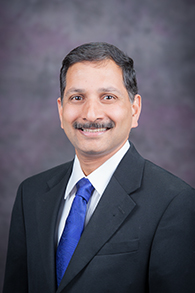
P.V. Vara Prasad, Ph.D.
University Distinguished Professor, R.O. Kruse Endowed Professor and Director, Feed the Future Sustainable Intensification Innovation Lab, Kansas State University, Manhattan, Kansas.
Country: United States of America
Title: “Climate Smart Agricultural Practices – Platforms and Examples“
Abstract: Climate change and climate variability negatively impacts productivity of food crops. In addition, climate change influences occurrence, intensity and spread of pests and diseases limiting productivity of crops. There is an urgent need to develop and scale climate smart agricultural practices with systems perspective to enhance productivity, nutrition and build resilience of our cropping systems to climate change. This should include exploring genetic, agronomic and ecological innovations to increase resilience through both adaptation and mitigation strategies using systems and transdisciplinary approaches. There is need for stronger collaboration between biophysical and social scientists to build resilience. Focus should be on broader one-health, end-to-end agri-food systems with emphasis of circularity. Several examples of different innovations and platforms for climate smart agriculture and circular bioeconomic systems will be presented and discussed.
Biography: P.V. Vara Prasad is a Distinguished Professor and Director of the Feed the Future Sustainable Intensification Innovation Lab at Kansas State University. He obtained his B.S. and M.S. from Andhra Pradesh Agricultural University (India) and Ph.D. from the University of Reading (U.K.). His research focuses on understanding responses of crops to changing environments; and developing best management strategies to improve and protect yields. He has active programs in Asia, Africa and Latin America and Caribbean. He has published over 350 journal articles and book chapters; trained 160 research scholars from 25 countries. His research has been cited over 21,000 times with an h-index of 75. He is an elected fellow of American Society of Agronomy; Crop Science Society of America; and American Association for the Advancement of Science. He is the Past President of the Crop Science Society of America.
Email: vara@ksu.edu
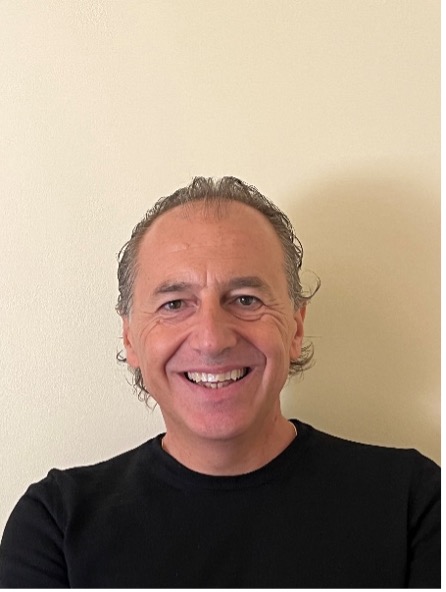
Bruno Basso, Ph.D.
Foundation Professor, Department of Plant, Soil and Microbial Science, Michigan State University
Country: United States of America
Title: “Enabling Circularity in Grain Production Systems”
Abstract: The presentation discusses how digital agriculture can enhance circularity in grain production systems by increasing the efficiency of natural resources and agronomic input to increase profitability and reduce environmental impacts. Novel sets of practices and working methods will be introduced as case study to show improved circularity and resilience of agricultural crop production systems.
Biography : Bruno Basso is cofounder of CIBO Technology, a Flagship Pioneering company. He is university foundation professor in the Department of Earth and Environmental Sciences and W.K. Kellogg Biological Station at Michigan State University. He is a member of the Board of Agriculture and Natural Resources of the National Academies of Science, Engineering and Medicine. He is a Fellow of the American Association for the Advancement of Science
Email: basso@msu.edu
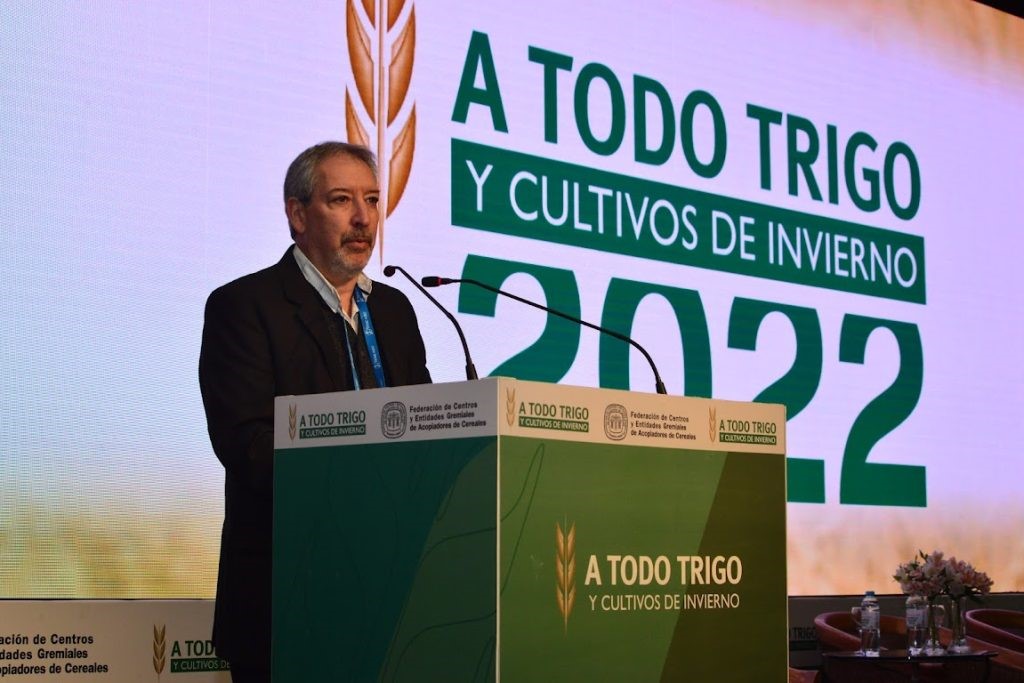
Daniel Miralles , Ph.D.
Senior Researcher at CONICET (National Scientific and Technical Research Council of Argentina). Associated Professor of the School of Agriculture University of Buenos Aires and Senior Researcher of IFEVA University of Buenos Aires.
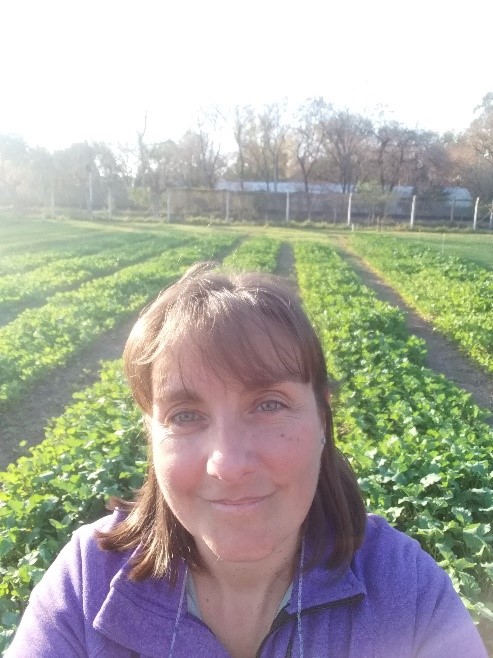
Deborah Rondanini, Ph.D
Independent Researcher at CONICET (National Scientific and Technical Research Council of Argentina). Adjunct Professor of the School of Agriculture University of Buenos Aires and Independent Researcher of IFEVA University of Buenos Aires
Country: Argentina
Title: Brassica carinata in the Pampas: Cultivar adaptability and resource efficiency from root to tip
Abstract: Brassica carinata (also known as Ethiopian mustard) is an opportunity for incorporating a new winter crop into the crop rotations in Argentina, especially associated with the growing interest in biofuel production from B. carinata. To successfully introduce B. carinata in the Pampas it is necessary determine the adaptability of the crop to different environments. Thus, firstly it is relevant understand i) the phenology of the crop and ii) knowing the strategies to produce yield and grain quality under different environments. Our group established a collaboration with Nuseed Co. for studying critical aspect of the crop. In terms of phenology we are building a phenological model named CHRONOCARINATA that can be used in a wide range (more than 250 locations) of environments of Argentina. The model predicts phenology for different developmental stages and shows the water status into the soils and the risk of frost and heat shock for different developmental stages. The model was validated using independent data originated in experiments carried out by Nuseed between 2018 and 2021 for Avanza 641 and Nujet 400 cultivars in different locations of Argentina. The model showed an error of prediction that was variable depending on the phenological phases. At first flowering the prediction error was of 9 days. Brassica C shows high light interception efficiency (>90%) by early September at visible floral bud, with a leaf area index (LAI) =2.5 Pre and post-flowering radiation use efficiency (RUE) was similar when energetic cost of biomass in taken into account with a value of 1.2 g /MJ which falls in the range of C3 crops (1.2-1.7 g MJ). Roots at flowering was 1 kilometer per m2 soil and contribute 1 ton ha-1 more dry biomass to the cropping system. Seed yield was around 2 ton ha-1, with a harvest index of 0.24, seed oil ca.47% and seed protein of 20%. Average oil yield was 1 ton oil ha-1 and 0.45 ton protein ha-1. At harvest, it contributed 7 ton ha-1 of stubble plus 1 ton ha-1 of roots (C sequestration in soil). In summary, Brassica carinata appears as a promising alternative to be introduced into the crop sequences as an oilseed winter crop.
Biography: Daniel Miralles is an ecophysiologist specialist in cereals and oilseed winter crops. He holds a PhD at the University of Buenos Aires (Argentina) and a postdoc at CSIRO (Commonwealth Scientific and Industrial Research Organization- Australia-). Actually, he is a Senior Researcher at the IFEVA-CONICET (National Scientific and Technical Research Council of Argentina) and Associated Professor of Cathedra of Cerealicultura at the School of Agriculture, University of Buenos Aires. International consultant in local and regional development projects. Published more than 100 international scientific articles, more than 20 book chapters and 5 books. He has coordinated more than 30 local, regional and international projects and has been invited as key speaker in different international conferences.
Email: miralles@agro.uba.ar
Biography: Deborah Rondanini is a plant physiologist specialist in oilseed crops. She holds a PhD at the University of Buenos Aires (Argentina) and a postdoc at CRILAR-CONICET. Actually, she is an Independent Researcher at the IFEVA-CONICET (National Scientific and Technical Research Council of Argentina) and Adjunct Professor of the Department of Crop Production at the School of Agriculture, University of Buenos Aires. Published 30 international scientific articles and 10 book chapters. She has coordinated a dozen competitive grants for applied research, and regional projects.
Email: rondanin@agro.uba.ar
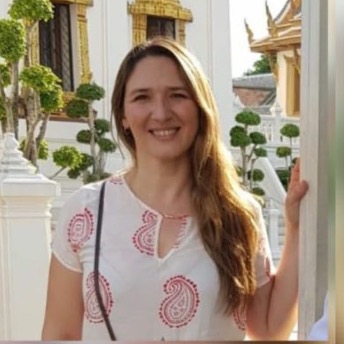
Paola Fontana, Ph.D.
Senior Researcher at INTA (National Institute of Agriculture Technology of Argentina). Coordinator of the Project: “Genetic breeding and ideotype development of industrial crops (sugarcane, peanut, yerba mate, cassava, stevia, quinoa and tea) for resilient productive systems”.
Country: Argentina
Title: “Vulnerability reduction and sustainability increase of small-scale Sugarcane productive systems”.
Abstract: There is an increasing demand for food of more nutritive value and produced in more environmental friendly systems. Sugarcane productive systems face low profitability issues; soil degradation, high GGE; high herbicides use; low variety diversity and yield reduction by diseases. Thus, they are highly vulnerable to the climate change impacts. In association with the Sugarcane Cooperatives Federation, science and technology institutions and the Province Government of Tucumán we are doing research, validation and transference of new socio-economical productive models. They include low environmental impact technologies developed by INTA for increasing systems sustainability and for adding value through the production of mascabo sugar and alcohol.
Smith Biography: PhD Paola Fontana is an Agronomy Engineer from the National University of Tucumán, Argentina. She had her Master Science degree in Agronomy Sciences in the National University of Córdoba and is PhD in Biological Sciences of the National University of Tucumán. Currently is a senior researcher at INTA, Genetic breeding, genetic resources and molecular biology area. She coordinates the Project: “Genetic breeding and ideotype development of industrial crops (sugarcane, peanut, yerba mate, cassava, stevia, quinoa and tea) for resilient productive systems”. She published numerous papers in scientific journals and book chapters and she is supervisor and co-supervisor of postgraduate fellows.
Email: fontana.paola@inta.gob.ar
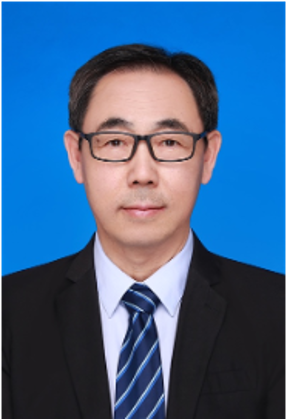
Jiaguo Qi, Ph.D.
Professor and Director, Professor of Geography, Environment and Spatial Sciences, Director of Asia Hub, International Studies and Programs, Michigan State University
Country: United States of America
Title : “Livestock, Food Security and Regional Economy from the WEF Nexus Perspectives.”
Abstract: Global demand for meat and the national need for economic prosperity motivated the nations in Central Asia to expand the utilization of their vast rangeland resources to increase livestock production. However, the implications for water-energy security and the ecological consequences of these economic and food-driven undertakings are largely unknown. A case study in Kazakhstan indicated the potential to increase livestock production by 3-fold, but water availability to meet livestock requirements would need to be addressed. The high variability in livestock carrying capacity suggests that policies and programs must be optimized for local ranch operations, vegetation status, and annual variation in weather. These findings provided important insights into the current rangeland state, potentials, and challenges that the government needs to consider as the country plans to expand its livestock production at the national level.
Biography: Dr. Qi served as the Director of the Center for Global Change & Earth Observations, Director of the Environmental Science and Policy Programs, and Director of the Office of China Programs over the last two decades. Currently, he serves as the Director of the Asia Hub, a new unit within the International Studies and Programs at Michigan State University. Dr. Qi has a broad interest in global change issues to understand better the complex interactions among land, water, climate, and society. His recent research efforts include the water-energy-food nexus framework to integrate land, human, the environment, and climate change for sustainable development in Southeast Asia, Central Asia, and East Africa. Dr. Qi is also actively engaged in many national and international programs. He served as MAIRS Project Scientist of NASA’s LCLU Program, the Steering Committee chair of the Future Earth Nexus KAN, the Science Steering Committee member of the MAIRS-FE Program, the liaison for the NEESPI program for China, coordinator for the Central Asia Regional Information Network (CARIN) and Mekong Regional Information Network (MekRIN).
Email: qi@msu.edu
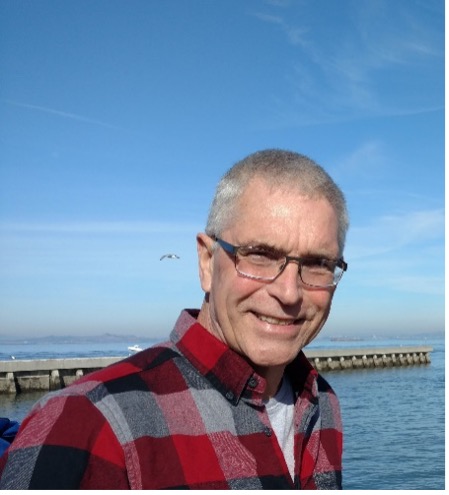
Marinus L. Otte, Ph.D.
Professor, Biological Sciences, North Dakota State University – projects on water and wetland, restoration and integration into entire watersheds. Editor-in-Chief of WETLANDS
Country: United States of America
Title: “Integrating wetlands in urban- and agriculture-dominated watersheds.”
Abstract: More than 85% of the world’s wetlands have been lost due to anthropogenic activities, particularly agriculture, and urban and industrial development. This has exacerbated droughts and floods, pollution, climate change, loss of biodiversity and other ecosystem services, and has led to enormous economic losses, well beyond what is sustainable. As the human population continues to increase in this Anthropocene, it is imperative that urban and agricultural development are considered as intrinsically linked within entire watersheds, integrating wetlands with a view to restore their invaluable ecosystem services. Not doing so will threaten food security and further exacerbate global change.
Biography: Dr. Marinus L. Otte is a professor at North Dakota State University, Fargo, ND, USA, and has specialized in wetlands research and education for more than 30 years. His interests range from biogeochemistry to whole watersheds and his work has included projects in many countries around the world: the Netherlands and Ireland, Kyrgyzstan, China, and Taiwan, several States in the USA, and most recently in Mexico. He has been the editor-in-chief of the scientific journal Wetlands since 2012 and has published almost 100 peer-reviewed articles and hundreds of conference contributions. He is a Fulbright Specialist in water and wetlands.
Email: marinus.tte@ndsu.edu

Andrew Muhammad, Ph.D.
Professor and Blasingame Chair of Excellence in Agricultural Policy, Department of Agricultural and Resource Economics, University of Tennessee
Country: United States of America
Title: “Agrivoltaic Systems and Climate-Smart Expansion of Solar Energy in Small and Medium Farms.”
Abstract: The objective of this research is to evaluate a dual land use modeling framework for joint placement of solar PV and croplands/grazing lands (agrivoltaic systems). The proposed solution is an integrated modeling framework for optimal siting, sizing, and placement of solar PV on farmland considering biophysical and social factors. Important to this project is a better understanding of how producers jointly maximize returns from solar energy and agricultural output in an agrivoltaic system relative to the costs and returns and optimizing behavior in a traditional agricultural system.
Biography: Dr. Andrew Muhammad is Professor and Blasingame Chair of Excellence in Agricultural Policy, in the Department of Agricultural and Resource Economics, University of Tennessee Institute of Agriculture. Dr. Muhammad previously served as the Associate Director of the Markets and Trade Economics Division (2016-2018) at the Economic Research Service (ERS), U.S. Department of Agriculture. He also served as Chief of the International Demand and Trade Branch at ERS (2013-2016). His current research focuses on agricultural trade and trade policy, global competitiveness of U.S. agriculture, effects of trade on developing countries, and determinants of global food choice. He currently serves on several Advisory Boards, including the Agricultural Policy Advisory Committee (APAC), which provides trade policy counsel to the Secretary of (Muhammad continued) Agriculture and USAID’s Board for International Food and Agricultural Development (BIFAD) Subcommittee on Systemic Solutions for Climate Change Adaptation and Mitigation in Food Systems.
Email: amuhamm4@utk.edu
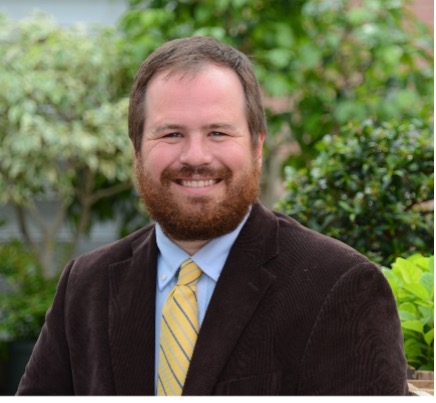
Christopher Currey, Ph.D.
Associate Professor, Department of Horticulture, Iowa State University
Country: United States of America
Title: “Controlled-Environment Agriculture – The Promise and pitfalls of Intensive Crop Production.”
Abstract: Controlled-environment agriculture (CEA) is an emerging and rapidly expanding method for intensive crop production. Using CEA techniques to grow food, ornamental, and medicinal crops provides opportunities to maximize productivity per unit area. Technologies commonly used in CEA production also allow for the conservation and reuse of resources and production inputs. However, while there are great opportunities and benefits associated with CEA, the intensive nature of this production method can also require intensive inputs. This presentation will introduce the current state of CEA, outline the benefits and challenges associated with it as a crop production system, and discuss the potential for CEA moving forward.
Biography: Dr. Currey has appointments in research, teaching, and extension. His controlled-environment and greenhouse crop research is focused on providing research-based best-management practices to support commercial producers of ornamental and food crops to improve sustainability, productivity, (Currey continued) and profitability using and managing light, temperature, mineral nutrition, and plant growth regulators. His scholarship spans beyond his research and Extension activities. Within the scholarship of teaching and learning, Dr. Currey strives to identify effective methods to increase student confidence and success in greenhouse crop production and increase student understanding of timely and important topics related to greenhouse crop production, such as local food security and native plant production.
Email: ccurrey@iastate.edu
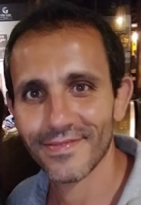
Martín Acreche, Ph.D.
Independent Researcher at CONICET (National Scientific and Technical Research Council of Argentina). Researcher of INTA EEA Salta.
Country: Argentina
Title: “Toward a low carbon agriculture in sugarcane”
Abstract: Sugar cane is a crop with high potential to replace non-renewable energies. However, the current production systems of this crop put this usefulness at risk since they prioritize productivity to the detriment of the crop’s sustainability. The main problems associated with traditional management practices are the high amount of greenhouse gases emitted and the decrease in soil organic carbon. Our lines of study aim to generate information on the effect of the main sugarcane management practices on greenhouse gas emissions and the stock of carbon in soil. In addition, we propose mitigation alternatives to traditional practices.
Biography: Martin Acreche is an agricultural engineer graduated from the Faculty of Natural Sciences of the National University of Salta, Argentina, in 2002. He has a PhD from the University of Lleida, Spain, with a thesis topic of “Eco-physiological bases of genetic gains of bread wheat yield in Mediterranean Spain during the 20th century” in 2009. He is a researcher repatriated to INTA by the PIDRI Program of Argentina in 2009. Since 2012, he is a CONICET Researcher (currently in the Independent category). He works at EEA Salta of INTA in crop ecophysiology of NOA crops with an emphasis on their sustainability. During his career, he has published more than 30 scientific articles, most of them in high-impact international journals, two book chapters, and numerous presentations at national and international conferences.
Email: acreche.martin@inta.gob.ar

National University of Quilmes & The National Scientific and Technical Research Council (CONICET)
Country: Argentina
Title: Soil Health Analysis for Sustainable Agriculture
Abstract: Soil is where any food production begins, and among other ecological services, water quality depends on soil quality. Soil is also one of the main biodiversity reservoirs on the planet. Most agricultural soils on our planet are degraded. It is mandatory to run sustainable food production processes to stop soil degradation and find those managements that can regenerate soil biology and structure. All these productive processes claimed to be sustainable need monitoring to check the actual preservation or improvement of soil health. Among others, biological soil quality indicators appear to be the most sensitive for that purpose. In our Lab, we have developed soil health indexes based on 14 years of working with farmers studying on-farm cases and assays. International validation of these indexes appears to be desirable for the global circular economy.
Biography: Luis Wall has a Ph.D. in Biochemical Sciences from the National University of La Plata, Argentina. He did his Posdoc at Swedish University of Agricultural Sciences. He is currently a Senior Researcher of CONICET and a Professor at the National University of Quilmes. He is Director of the Center for Soil Biochemistry and Microbiology at the National Univesity of Quimes. He has 85 published papers, 2 books, 9 supervised doctoral theses.
Experience in Cooperation Research Projects (France, Sweden, Denmark, Spain) and as part of international consortiums on Nitrogen Fixation. Luis G. Wall studies soil microbiology and biochemistry and the interactions between plants and microorganisms. Since 2009 he has been working with no-till Farmers and agriculture stakeholders in the development of biological indicators of soil health.
E-mail: wall.luisgabriel@gmail.com; Linkedin: @Luis Gabriel Wall; Twitter: @LuisWall59
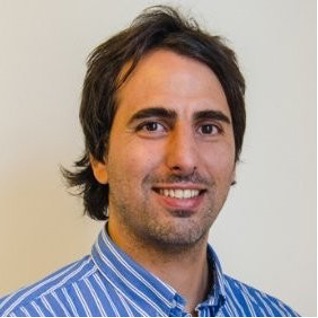
Esteban Barelli, Ph.D.
Leader at Economic Divison, Research and Develpment, CREA
Country: Argentina
Title: “Circular Economy at CREA: from concept to application”
Abstract: The presentation introduces how the CREA Movement is contributing to sustainable production throughout the Circular Economy in agricultural activities. The CREA Circular Economy Project is a collaborative initiative with the Embassy of the Kingdom of the Netherlands in Argentina. This Project aims to generate data and information for agricultural actors as well as specific new sustainable finance tools.
Biography: Esteban Barelli is part of the CREA Research and Development Unit as Leader of the Economics Area and Leader of the CREA Circular Economy Project. He is a researcher in the Research Quantitative Methods Center Apply to the Economy and the Management (Faculty of Economic Sciences – University of Buenos Aires). He is an agribusiness consultant.
Email: ebarelli@crea.org.ar

Ariel Ricardo Angeli, Director of Research & Development – CREA Argentina.
Title: “Circular Economy at CREA: from concept to application”
Biography: Ariel Angeli is the Director of R&D in Regional Consortium of Agricultural Experimentation (CREA) Argentina. He received a degree in Agronomic Engineer from the University of Río Cuarto (UNRC) and a Magister Scientiae degree in agricultural production with a mention in Environmental management from UNRC. He had worked as team leader of environment Department in R&D unit, he leaded a crop rotation project, he had been a technical advisor in a CREA farm group and as leader of agricultural board at Centro Region in CREA. His main interest is on the relationship between agricultural production systems and environment. He works on the inclusion of productive, economic, and environmental aspects in farmers decision making.
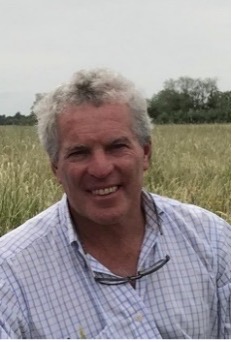
Ezequiel Sack, Producer
Producer Regenerative Agriculture
Country: Argentina
Title: “Regional Experiences in Regenerative Livestock”
Abstract: The presentation covers the central axes of regenerative livestock; emphasizing the main transformations necessary to adopt a productive model based on Natural Processes. Crucial contributions of regenerative livestock to the mitigation of Climate Change. Presentation of Association GRASS FED – Argentina.
Regenerative Livestock throughout the country. Experiences from North to South. What is the animal biotype with the best characteristics to adapt to the new management according to region, what tools are essential to achieve it and how we can measure evolution. Importance of livestock size, adaptation and phenotypic response. Emphasis on Animal Reproduction and Grassland Health. Production and Marketing of Regenerative Meat; Introduction to the concept of the brand “Native Grasslands”.
Biography: Ezequiel Sack is a livestock producer. Founding Partner of the Regenerative Cabin of Angus and Murray Grey “Genetics of the East SA”. Creator of the “Greyman Argentino” Breed. Founding Partner of the Murray Grey and Greyman Argentine Association and President since 2005, working on livestock adaptive strategies to climate change. Founding Partner and Vice President of the GRASS Association FED Argentina. Founding Partner of the Breedplan Group, creator of the Responsible Livestock Protocol. Founding Partner of Boran Argentina.
Committed to regenerative agriculture and livestock feeding of natural grasslands. He has more than 30 years of experience in selection by adaptation and breeding of functional rodeos with the Greyman Argentino, Senegrey, Andean Composite Breed breeds.
Email: ezequielsack@hotmail.com